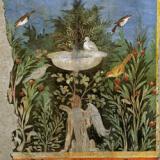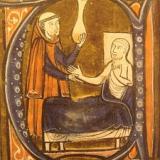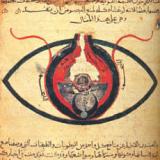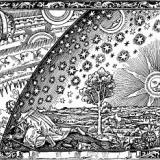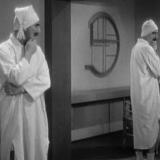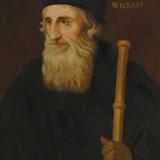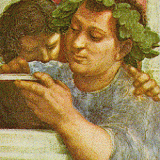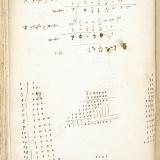Atomism
Posted on
In this episode Peter discusses the Atomists Democritus and Leucippus, and how they were responding to the ideas of Parmenides and his followers.
Posted on
Peter begins to examine the philosophy of Epicurus, focusing on his empiricist theory of knowledge and his atomic physics.
Posted on
A first look at the philosophical contributions of Islamic theology (kalām) and its political context, focusing on the Mu'tazilites Abū l-Hudhayl and al-Naẓẓām.
Posted on
The doctor and philosopher Abū Bakr al-Rāzī sets out a daring philosophical theory involving five eternal principles: God, soul, matter, time and place.
Posted on
Ibn al-Haytham draws on the tradition of geometrical optics to explain the mystery of human eyesight.
Posted on
Al-Ash'arī puts his stamp on the future of Islamic theology by emphasizing God’s untrammeled power and freedom.
Posted on
The Vaiśeṣika school offers a metaphysical analysis of the world and an atomistic physics.
Posted on
The Vaiśeṣika response to Buddhist skepticism about wholes made up of parts.
Posted on
Ockham, Buridan, Oresme and Francis of Marchia explore cosmology, atomism, and the impetus involved in motion.
Posted on
The debate between Nicholas of Autrecourt and John Buridan on whether it is possible to achieve certain knowledge.
Posted on
John Wyclif refutes nominalism and inspires the Lollard movement, which anticipated Reformation thought with its critique of the church.
Posted on
The rediscovery of Epicurus, Lucretius, and Sextus Empiricus spreads challenging ideas about chance, atomism, and skepticism.
Posted on
How scientists of the Elizabethan age anticipated the discoveries and methods of the Enlightenment (without necessarily publishing them).
Posted on
Changing ideas about eyesight, light, mirror images, and refraction – and the skeptical worries they may have inspired.


